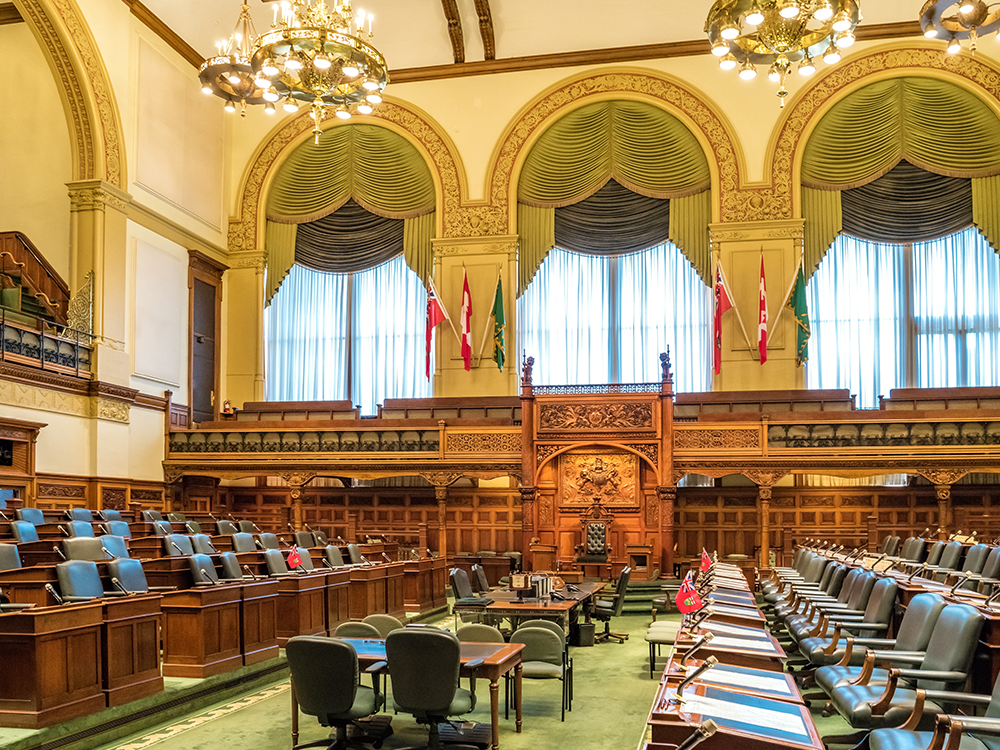Last week, the Government of Ontario passed new housing legislation – Bill 97, the Helping Homebuyers, Protecting Tenants Act (“HHPA”), 2023.
Bill 97 makes some significant changes to the Residential Tenancies Act, 2006 (“RTA”).
Note, these rules have not been proclaimed or brought into force yet. They require supporting regulations which the province is currently working on. While they haven’t come into force, it’s important real estate boards, housing organizations, REALTORS®, landlords and tenants are aware of what’s coming soon.
Here are four upcoming changes you should know about:
Access to Air Conditioning
Bill 97 enhances a tenant’s right to install air conditioning in their units. Under the new rules, landlords are unable to prohibit the installation of air conditioning units in rental apartments, provided the following conditions are met:
- Renters must notify their landlord, in writing, that they intend to install an air conditioner;
- The air conditioner must be installed safely and securely without causing damage;
- Renters must pay for the air conditioner, installation and maintenance;
- Installation and maintenance would have to comply with any applicable laws, including municipal by-laws;
- Where the landlord supplies the electricity:
- Renters would be required to inform their landlord about the air conditioner’s energy efficiency and how much they anticipate using it;
- Landlords would be allowed to charge a seasonal fee based on the actual electricity cost or an estimate based on the information provided by the tenant; and,
- The landlord is entitled to enter the unit for the purposes of inspecting the air conditioning unit and that it has been installed safely and securely.
Termination for Repairs/Renovations
Currently, under the RTA, a landlord can serve a notice of termination of tenancy if the landlord intends to undertake repairs or renovations that are so extensive, they require a building permit and vacant unit to complete. Prior to Bill 97, if a tenant was given notice of termination for repairs or renovations, the tenant had a right to move back into the unit once the repairs were completed.
Bill 97 enhances the rights of tenants as they relate to tenancy terminations for repairs and renovations in three areas:
- First, if a landlord intends to terminate for repairs or renovations Bill 97 now requires them to provide a report by a qualified person which states that the repairs or renovations are so extensive, they require vacant possession. If the landlord does not provide the report the termination notice is deemed void.
- Second, the landlord must also provide the tenant with written notifications about the status of renovations/repairs, including estimated completion date and any changes to this date, as well as a final notification once the renovations/repairs are completed stating when the unit will be ready for re-occupancy.
- Third, Bill 97 requires landlords to give tenants a 60-day grace period after the unit is ready for occupancy for the tenant to move back in.
Doubling Fines Under the RTA
Once proclaimed into force, Bill 97 will double fines under the RTA for things like bad faith evictions:
- from $50,000 to $100,000 for individuals
- from $250,000 to $500,000 for corporations
Rent Arrears Repayment Agreements
Finally, Bill 97 brings forward a mandatory new form for rent repayment agreements. A repayment agreement under s. 206 of the RTA is used when a landlord has applied to the Landlord Tenant Board (“LTB”) to evict a tenant for rent arrears, and the landlord and tenant agree to a repayment plan without immediately resorting to an eviction. If the parties reach such an agreement, the agreement is given effect by an LTB order setting out the terms of payment.
Bill 97 amends the RTA to make the use of a form approved by the LTB mandatory for repayment agreements made under s. 206.
The form can be viewed here: https://tribunalsontario.ca/documents/ltb/consultations/LTB_Payment_Agreement_2020_EN.pdf
Bill Summary
For a summary of all the changes coming to the RTA under Bill 97 click here.
Questions?
Please reach out [email protected] if you’d like clarification on these or other changes being brought forward under Bill 97.
Disclaimer: The information contained in this post is not meant to be relied upon as legal advice. Individuals wishing further clarity or advice should seek independent legal advice specific to their circumstances. The regulatory environment is changing, and this document may not be current or accurate by the time it is read.




